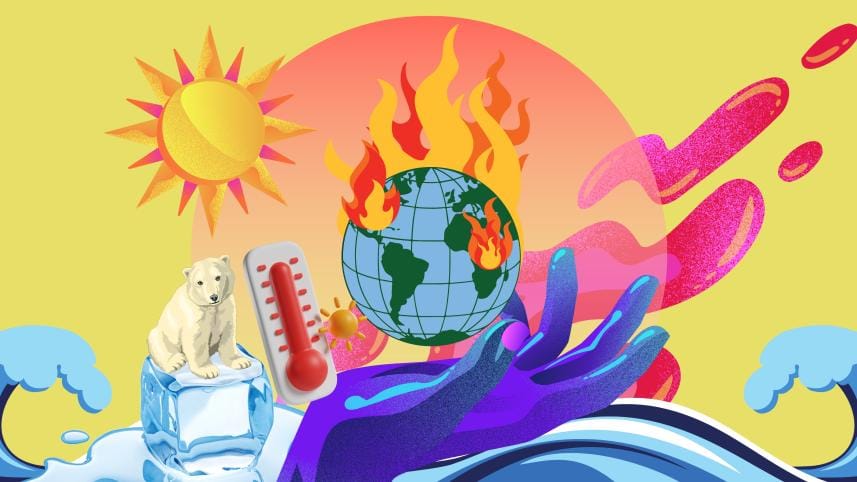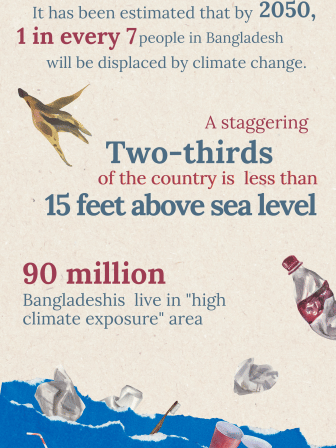Climate Crisis: Explained

What is the common factor between you, a student stuck on a rickshaw in 40-degree Celsius temperature, and a polar bear, stranded on a tiny piece of ice? You're both suffering under the global climate crisis.
Since the Industrial Revolution, human activities have been the main driver of climate change. Emissions of greenhouse gasses, such as methane and carbon dioxide, have caused more heat to be trapped by the ozone layer, resulting in a drastic increase in global temperatures.
Consequently, the average global temperature will increase by 1.5 degrees Celsius from the pre-industrial era within the next 5 years. While it may seem like a small number, keep in mind that the hottest day ever recorded globally was on July 3, 2023, which means things will probably get worse from here. The alarming heat levels also affect our lived environment, leading to strained water supplies, power shortages, and even weakened food security.
People living in under-developed or developing countries, such as Bangladesh, are more vulnerable to the horrific impacts of the crisis. Rising numbers of flash floods in the country oftentimes mean people have to leave their homes behind in order to survive. On the other hand, the occurrence of droughts means there is an increased risk of famines. As a result, people having to undergo such horrific tragedies must relocate as "climate refugees" in order to live.
So, what exactly is worsening the climate crisis? "Human activity", as one of the main drivers means that we, as individuals, are contributing to global warming due to carbon emissions from our cars, plastic and food waste, overconsumption of power, etc.

While that may be so, it must be noted that large corporations are the biggest culprits. Take Shein, for example. The fast-fashion mega corporation has become a household name all the while generating about 6.3 million tons of carbon dioxide per year.
The next question may be: what's being done about this? Global frameworks and agreements, such as the Paris Agreement, the UN Framework Convention on Climate Change, and the Sustainable Development Goals, are in place to cut down on global emissions. Many countries are also switching from fossil fuels to renewable energy, such as solar or wind.
In such situations, feelings of helplessness or eco-anxiety are common. You may feel as though individual efforts may not make that big of a change in the grand scheme of things. But know that everything counts. You choosing to cut down on plastic waste or opting for eco-friendly modes of transport helps the planet. Additionally, raising awareness among your peers and family may encourage them to integrate sustainability into their lives. You can also use your platform to advocate for sustainable policies and help make a difference. So, while the climate crisis sounds terrifying, there may be hope yet.
The writer is a sub-editor at Rising Stars.

 For all latest news, follow The Daily Star's Google News channel.
For all latest news, follow The Daily Star's Google News channel.
Comments